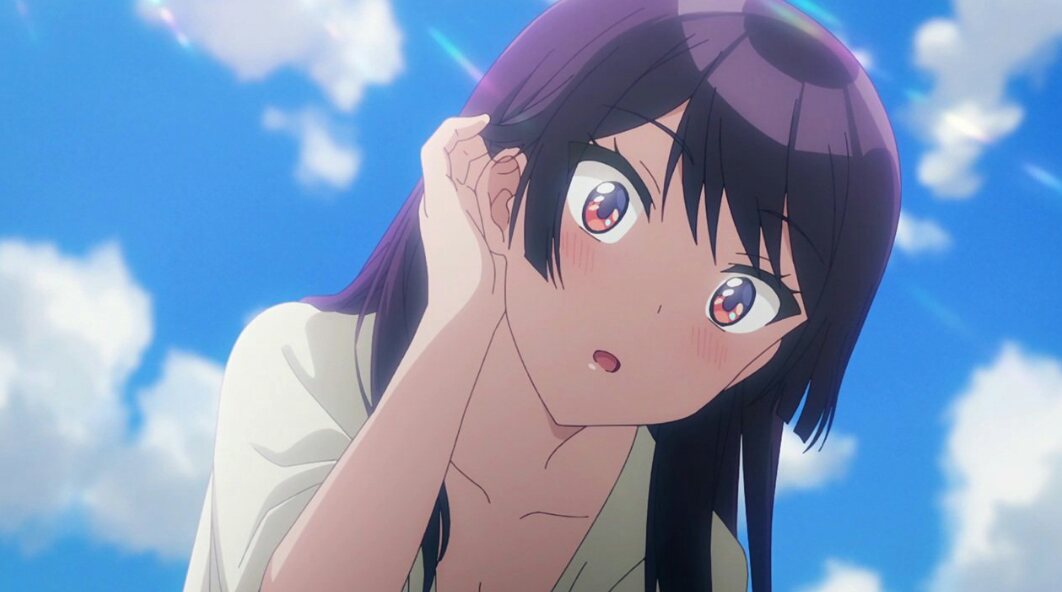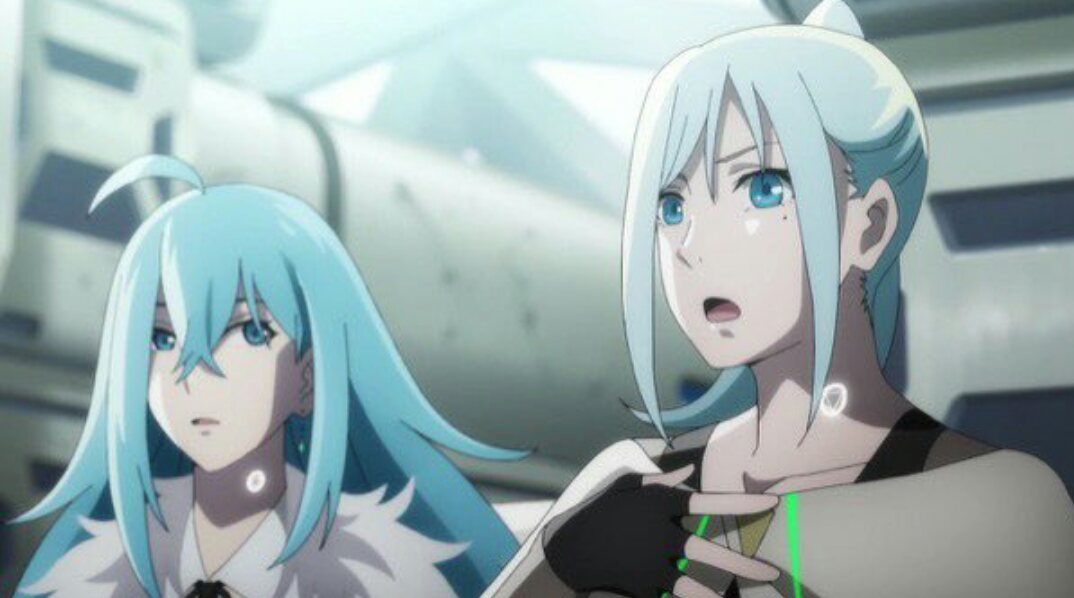SEASONAL PRATTLE
As far as quality is concerned, Vivy: Fluorite Eye’s Song isn’t flinching at all in its latest, still very much gliding on its usual favorable assets as it inches closer to the finish line. After last week, episode eleven was in a great position to be devastating in its own way and here it appears to be more than happy to take advantage of it. The start of the war was certainly well-portrayed – Wit is once again in good shape with its craft flourishes in and out of action – but it was the meeting with Yui and crew that was quietly the star. This series is often praise-worthy for its mixture of bold aesthetic prowess and wider telling of its arcs, smoothly earning emotional payoffs time and time again, however smaller narrative tie-ins and script inclusions with fewer bells and whistles attached really contribute to making this story succeed – and this version of Toak is a good example of that. Their involvement not only gives the series a good opportunity to put some extra spice on some of their character threads, but it’s also a sneakily strong way to bridge into and shape up the endgame they want as well.
Shadows House (9)
“Steadily good in how it manages the variables of its story and this time around is no different”
Shadows House presses on, presenting a ninth episode that’s very comfortable in rolling out its bigger narrative strokes and nurturing its own drama to pleasing results. The boulder bit was nicely built and engaging: The back and forth between Ricky and Shuan before it gave it enough initial steam to be immediately productive, and some fine patches of character acting when the boulder got going sold the gravity of the situation pretty well – allowing John’s solution to the problem to ultimately land as both fun and effective. And to a slightly lesser extent, that compliment applies to Kate’s rescue in the waning minutes of this week too, using the starting keys and the cage chains to successfully elevate. Shadows House on a whole has been steadily good in how it manages the variables of its story and this time around is no different.
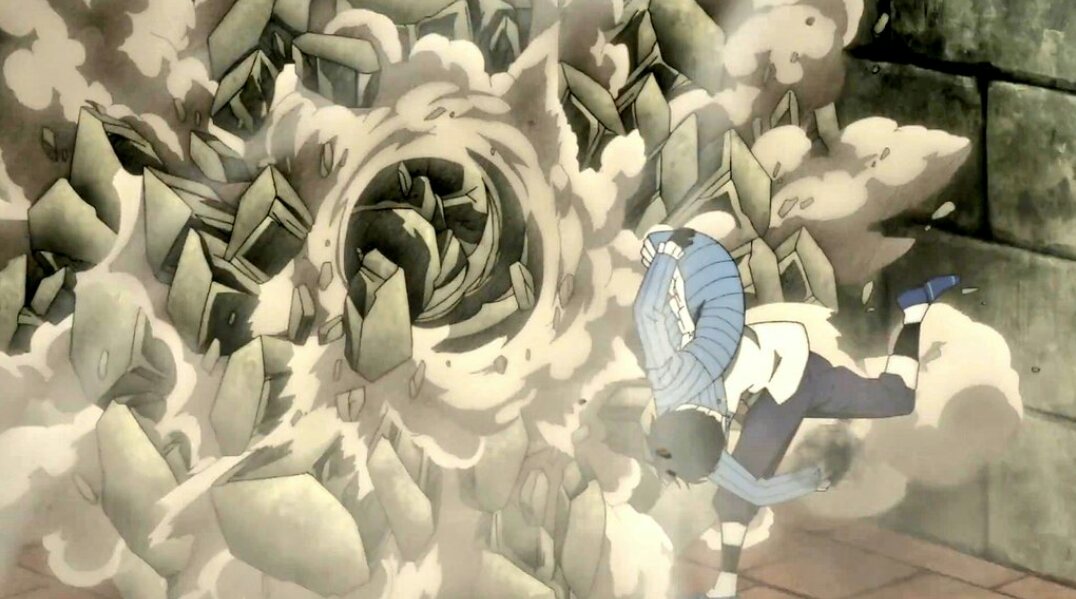
Fumetsu no Anata e (8)
“Articulated well solely through less cluttered layouts, looming frames, and a hearty emphasis on the barriers, tangible and intangible, that keep those away from Gugu”
In an episode like this week’s Fumetsu no Anata e, space is a blessing. There’s a mixture of Gugu centric beats that are articulated well solely through less cluttered layouts, looming frames, and a hearty emphasis on the barriers, tangible and intangible, that keep those away from Gugu – serving double duty to fasten the sense of sadness and isolation that runs deeply through many chunks of eight’s narrative. This overall presentation was also a natural match for the handful of well placed reflective sequences in the back half of this week; Fumetsu no Anata e clearly knows its plot fundamentals are robust enough that the audience can understand every necessary turn and now it’s just drizzling on its thematics with grace. It’s a good one-two punch and one that works wonders in playing off of Gugu’s condition. Nicely done Brain’s Base.
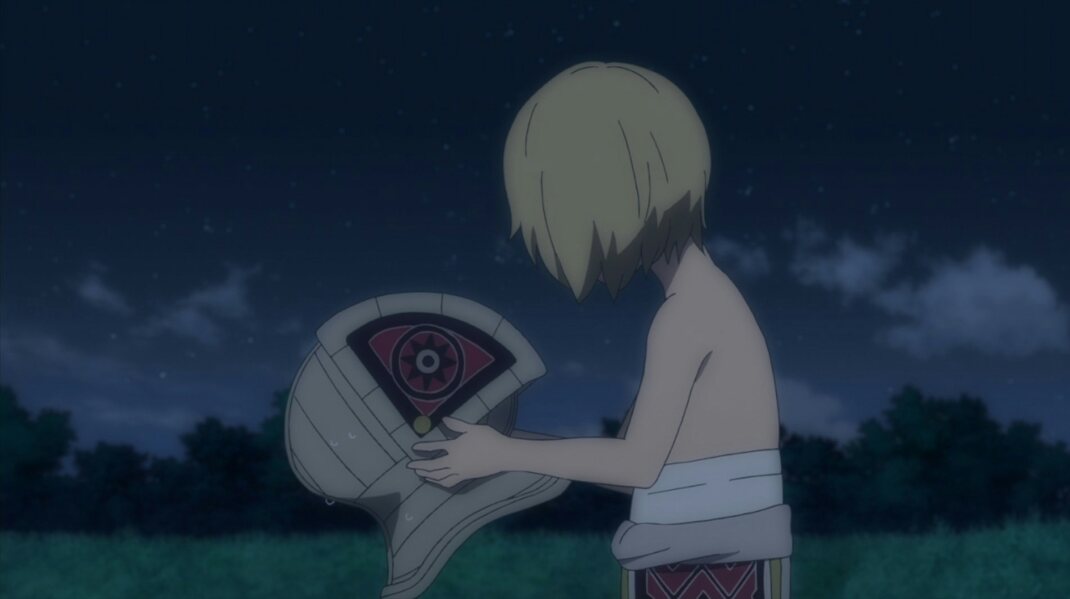
Super Cub (9)
“Does manage to pull off its share of pleasing layouts and sequences that adhere very well to its reliably soft temperament”
This week’s Super Cub was pretty much textbook Super Cub, a reliable package of genre fundamentals that are decorated with an acute affinity for bikes and seasons. Episode nine isn’t truly aesthetically athletic but the episode does manage to pull off its share of pleasing layouts and sequences that adhere very well to its reliably soft temperament. That plus the friendship-reinforcing events of Shii’s wool sharing and Koguma and Reiko striving to brace for the upcoming Winter generally made nine an endearing experience that’s rather comfortable to sit through. Super Cub proceeds to be a sturdy and wholesome show.
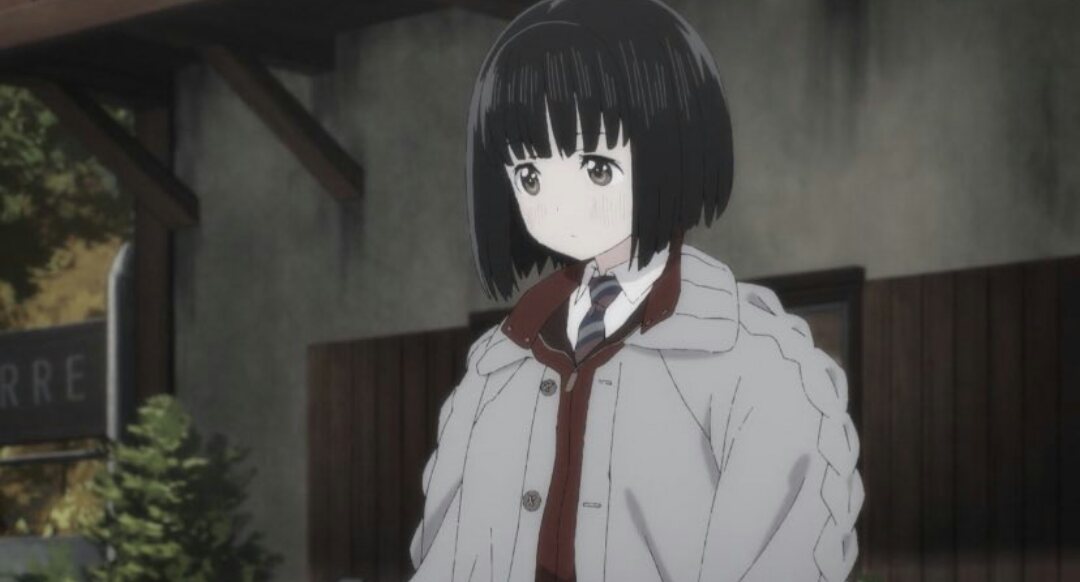
86 (9)
“Outfitted with a variety of directorial choices and embellishments that act as if the audience just watched a full climactic end to a two-cour series”
86 chugs on, offering a performance that functions with a level of dexterity and awareness suited for a finale, despite it being only the ninth episode, and blending that into a suite of choices that eventually fall into melodramatic territory. With that said, the base flow of episode nine is awkward: Shin finally being able to face off against his brother is surprisingly short-lived given the build and stake the series has pinned to his character, and the same can be said about the “last mission” against the legion in a general sense – both of which are over in roughly ten minutes yet are outfitted with a variety of directorial choices and embellishments that act as if the audience just watched a full climactic end to a two-cour series.
And the rest of the episode is arguably worse, partly due to the totally abrupt contrast in behavior in Lena’s character during her part with Annette and partly due to the very melodramatic run scene that attempts to conclude in an emotional cliffhanger based on the Para-raid’s range; An aspect as it relates to Lena’s location that is hardly even touched upon in the anime, if at all, and thus is more of a confusing end to this week rather than a resonant one. Episodes like this make me wish 86 was better written.
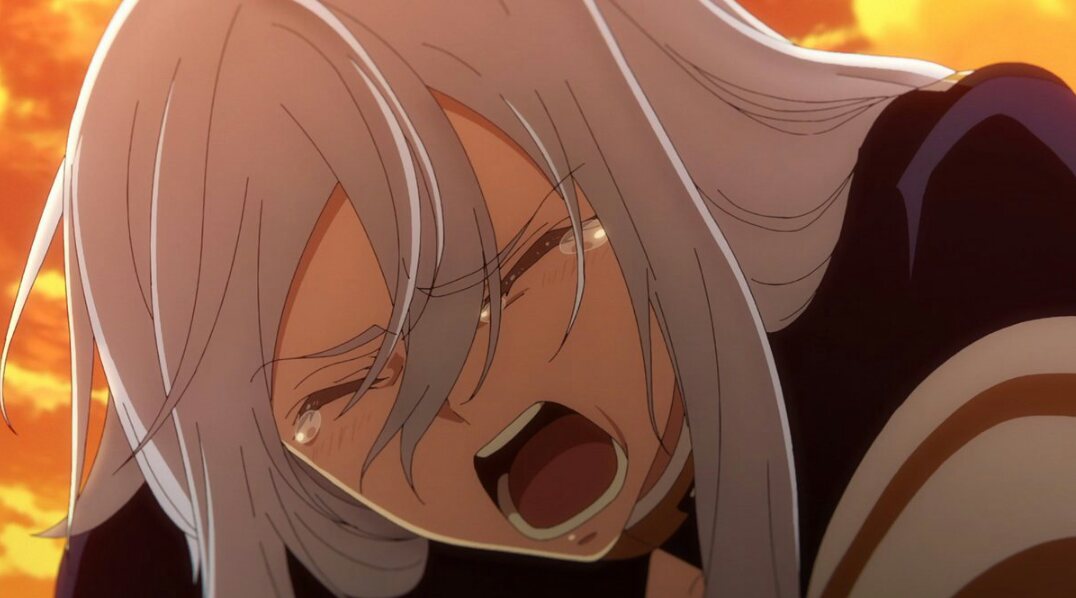
Mashiro no Oto (10)
“Thankfully ended up in a solid way”
Mashiro no Oto comes back, now reaching a double-digit episode count and coming that much closer to being completely over. While this week mimicked some of the less desirable traits of the tournament’s earlier material, namely plodding through small talk and other hallow beats at its start, it thankfully ended up in a solid way. Ryuugen’s overall presence and relationship reveal can easily be claimed as the biggest contributor to that given the long-term implication it has for Setsu, and the immediate pressure he applies in just being at this event in general – but our back-half acts are no slouch either! Mashiro no Oto has an easy time working well with more spirited performances – the show never really has any hangups transferring performer passion into a sense of energy that the viewer simply gets – and Ushio is all spirit in episode ten.
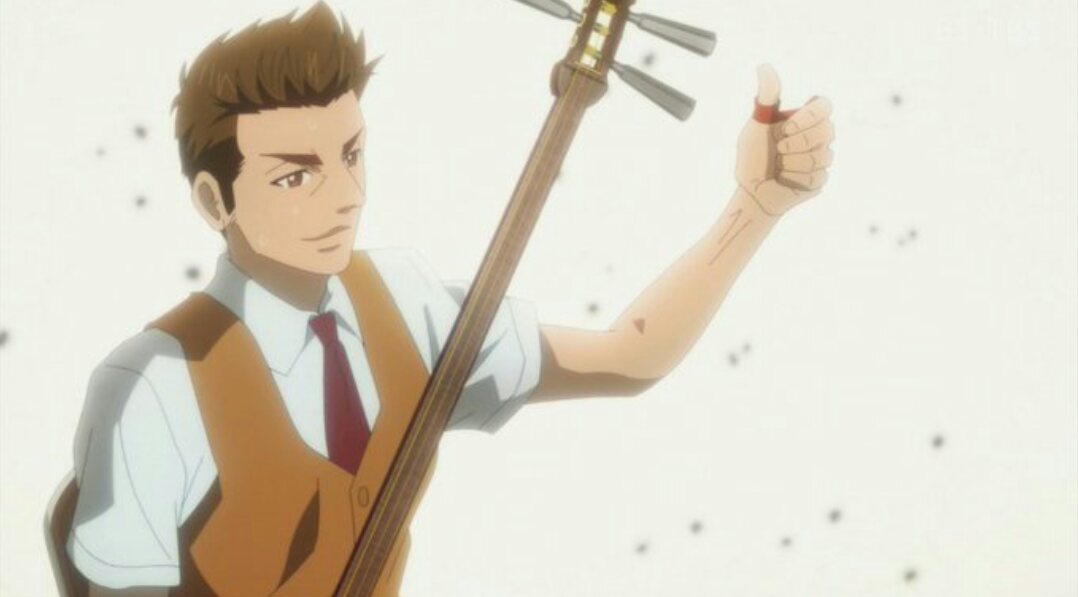
Higehiro (9)
“Isn’t really witty or surprising in its handling and development of Yuuko but it’s smooth enough around the edges where her fate lands decently”
A better emotional sell from Higehiro this time around and easily the clearest portrayal of Sayu’s headspace yet. In a way, it’s a bit disappointing that Issa didn’t turn out to be the dramatic hill that needed climbing as the show was positioning him as – but what we got instead was a lot more valuable. Getting Sayu’s actual backstory was obviously going to be a springboard for pain with the question being how well will it be articulated. And for the most part, it turns out the answer is reasonably: Episode nine isn’t really witty or surprising in its handling and development of Yuuko but it’s smooth enough around the edges where her fate lands decently. The following fallout and frustration from Sayu and her mother also isn’t that shabby in how it’s conveyed and both pieces of the backstory, in general, are easy to understand. I haven’t been the biggest supporter in how Higehiro voices its ideas and some of the approaches they utilize to tell this story, but this works.

Osananajimi ga Zettai ni Makenai Love Comedy (7)
“If there’s any silver lining here it’s that this week isn’t a stuffed mess narratively”
Osamake’s dedication to degrading itself firmly remains intact, serving another gracious heap of cliche-soaked, lazily imagined flows and scenarios in its latest spectacle. If there’s any silver lining here it’s that this week isn’t a stuffed mess narratively; Recent previous episodes have tried way too hard to accommodate multiple storylines and have generally ended up as a slush of plot beats that often felt at times like they were rushed – and thankfully that isn’t a glaring issue here. Be that as it may, this episode still struggles to reach the low bar of mediocrity as it’s essentially a hard concentration of Summer vacation house tropes served in a very bland way – not even being able to pull off good fan service during the inevitable beach scenes as Osamake just settles for some pretty standard angles, outfits and expressions and calls it a day. And the surrounding material that supports it all is just very upfront harem antics and an unremarkable stab at a contemplative one on one with Shiro. If this series is good at anything it’s certainly at being deeply unimpressive.
